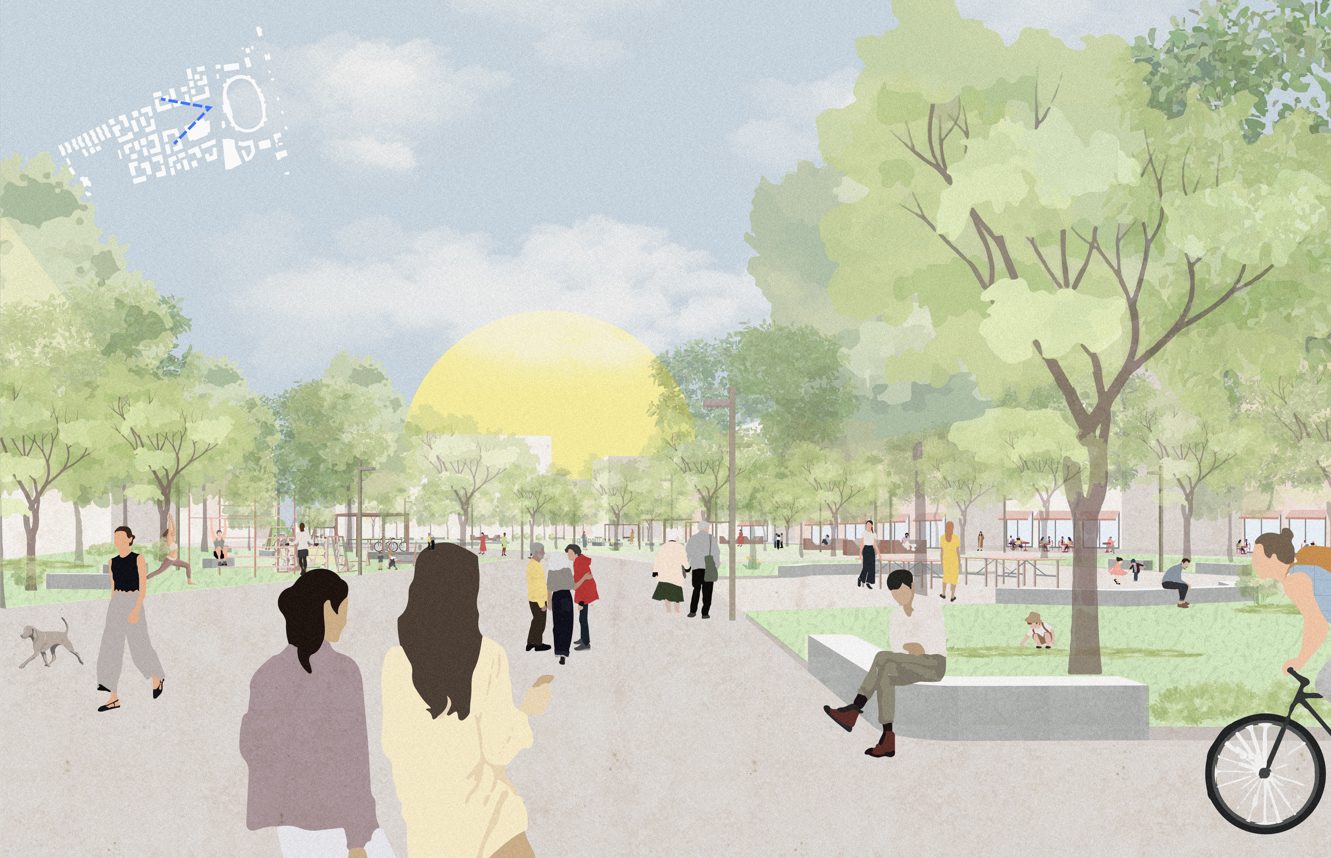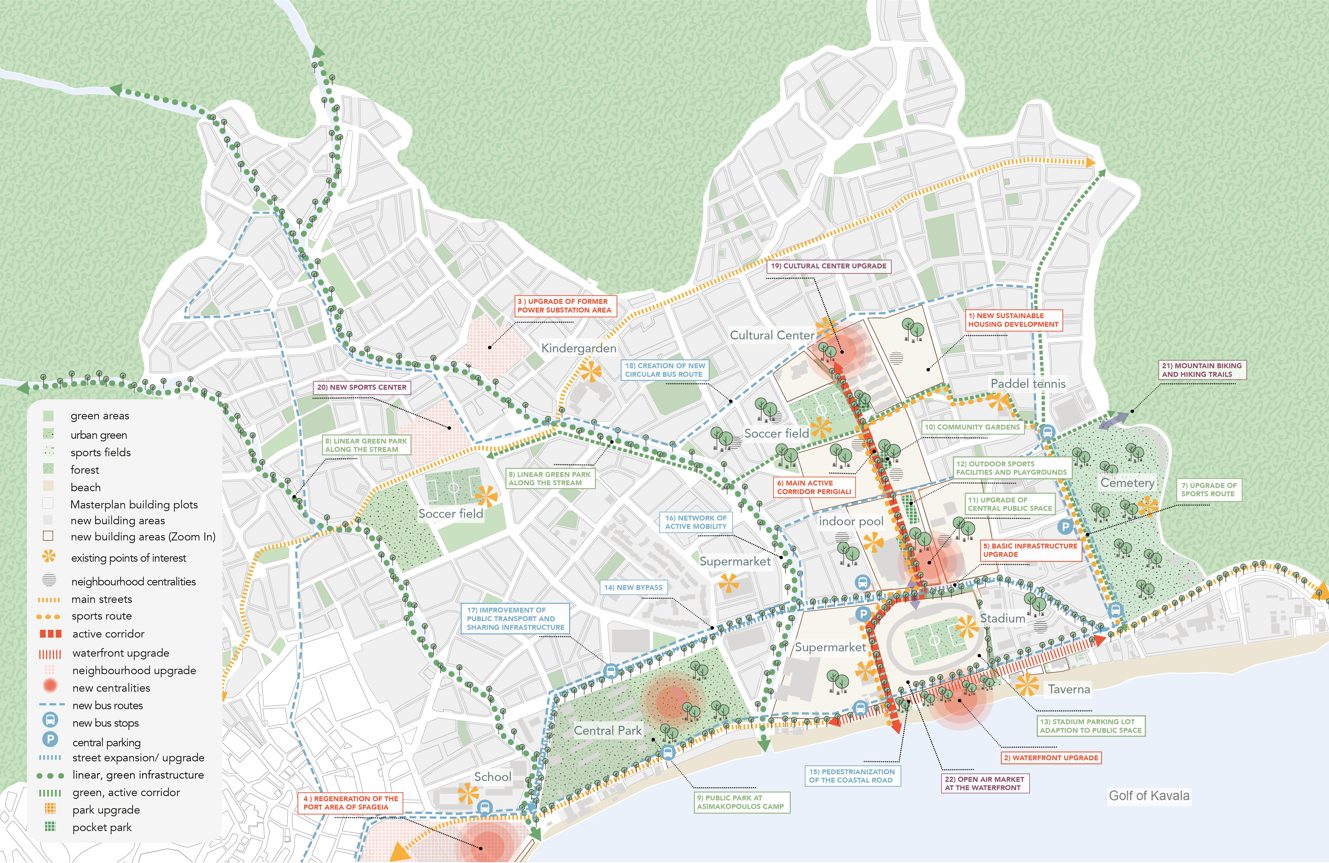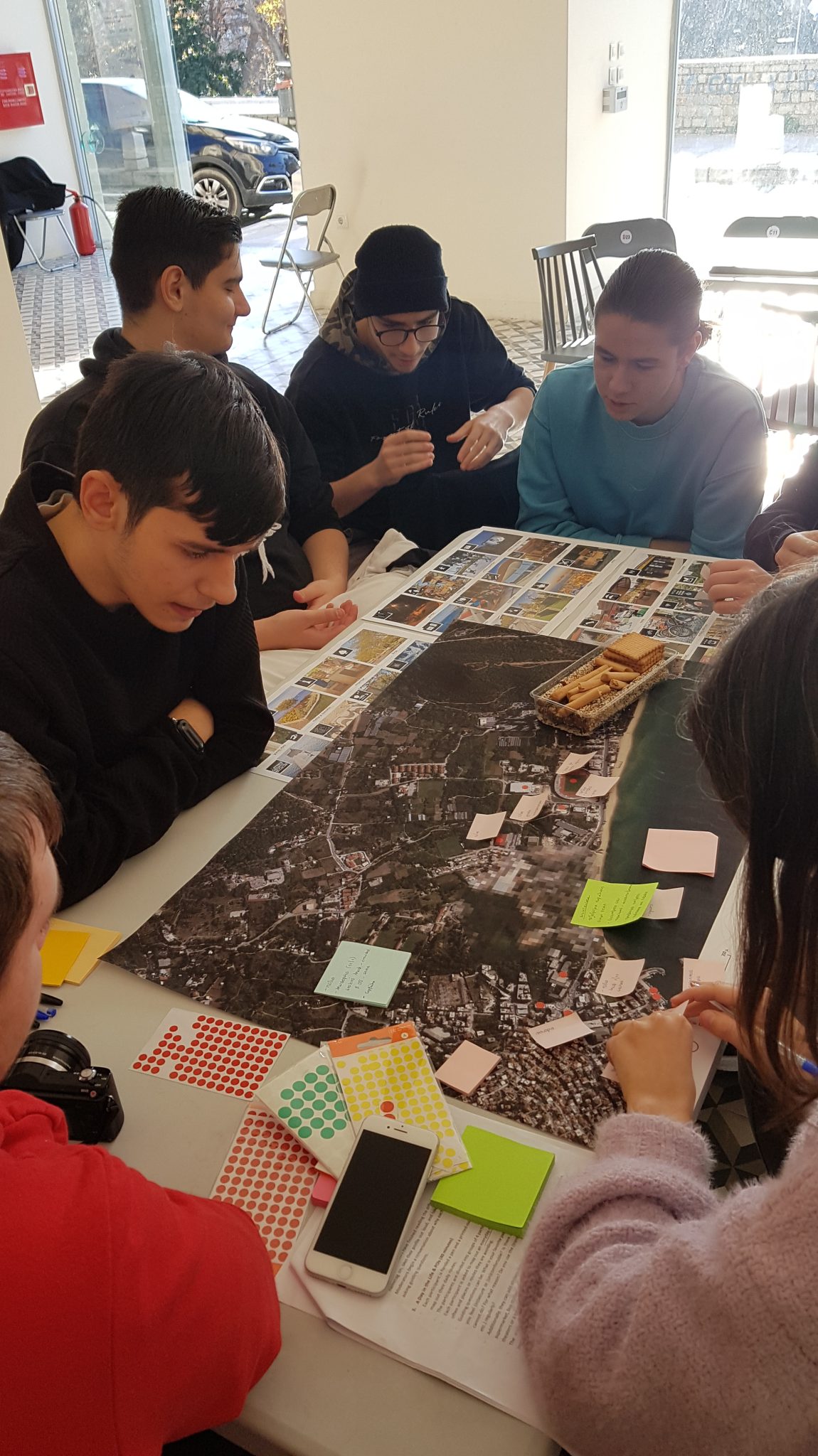Participatory Neighborhood Planning Processes in Greece I Kavala
Greece Sustainable Cities and Regions Through Integrated Territorial Investments
Year
2024
Status
ongoing
Location
Kavala I Greece
Collaboration
Urbana
Client
World Bank
EN
The World Bank project “Greece Sustainable Cities and Regions through Integrated Territorial Investments – Participatory Neighborhood Planning Processes in Three Medium-Sized Cities in Greece”, funded by the European Commission’s DG Regio, aims to support Kavala, as one of three Greek cities, in the sustainable and climate resilient development of the city, specifically focusing on the neighborhood Perigiali. The main objective is to apply practical methods to improve strategic processes and plans, as well as the design of sustainable development projects, and to accelerate their implementation.
The overarching goal for all three Greek cities is to support local communities in developing neighborhood visions and action plans, promoting community participation and engagement, enhancing the development of practical strategies and action plans, and facilitating cooperation and coordination among different stakeholders.
Through a participatory process, which included multiple workshops with residents of Kavala, the project focused on structuring the development of Perigiali, an area undergoing urban expansion, with the goal of creating a cohesive and sustainable district. A key element of the plan was the Main Active Corridor, which would serve as the central backbone of the new development, linking residential, commercial, and recreational areas while integrating pedestrian and cycling infrastructure to encourage sustainable mobility.
To enhance the area’s environmental sustainability, the plan incorporated green and blue infrastructure, such as revitalizing a local stream into a linear park. This transformation would not only improve stormwater management but also increase biodiversity, contributing to a healthier urban ecosystem. A new central public square was proposed adjacent to a cultural center, designed to become a focal point for social, cultural, and economic activities, bringing the community together.
Addressing mobility challenges, the project emphasized improving public transport connections and reducing car dependency through smart urban design solutions, ensuring efficient movement throughout the district. In addition, the inclusion of community gardens, sports facilities, and mixed-use developments would foster a sense of community, enhance livability, and promote social interaction among residents.
The final report provided the findings and results of the participatory visioning exercises during the Urban Lab, as well as a comprehensive plan with urban design visuals, policy recommendations, and a phased implementation strategy to guide the sustainable expansion of Kavala. This approach ensures that Perigiali’s development not only meets the needs of the present but also supports long-term, environmentally responsible growth.
DE
Das Weltbank-Projekt „Griechenland: Nachhaltige Städte und Regionen durch integrierte territoriale Investitionen – Partizipative Nachbarschaftsplanungsprozesse in drei mittelgroßen Städten Griechenlands“, finanziert von der Generaldirektion Regionalpolitik und Stadtentwicklung der Europäischen Kommission (DG Regio), zielt darauf ab, Kavala – als eine von drei griechischen Städten – bei der nachhaltigen und klimaresilienten Stadtentwicklung zu unterstützen. Der Fokus liegt dabei auf dem Stadtteil Perigiali. Hauptziel ist es, praxisorientierte Methoden zur Verbesserung strategischer Prozesse und Planungen sowie zur Gestaltung nachhaltiger Entwicklungsprojekte anzuwenden und deren Umsetzung zu beschleunigen.
Das übergeordnete Ziel für alle drei griechischen Städte ist es, lokale Gemeinschaften bei der Entwicklung von Nachbarschaftsvisionen und Aktionsplänen zu unterstützen, Beteiligung und Engagement der Bevölkerung zu fördern, praxisnahe Strategien und Maßnahmen zu entwickeln und die Zusammenarbeit sowie Koordination zwischen verschiedenen Akteur*innen zu erleichtern.
Durch einen partizipativen Prozess, der mehrere Workshops mit Bewohner*innen von Kavala umfasste, konzentrierte sich das Projekt auf die strukturierte Entwicklung von Perigiali, einem Gebiet in städtischer Erweiterung. Ziel war es, ein zusammenhängendes und nachhaltiges Stadtviertel zu schaffen. Ein zentrales Element des Plans war der „Main Active Corridor“ – das Rückgrat der neuen Entwicklung. Dieser soll Wohn-, Geschäfts- und Freizeitbereiche verbinden und gleichzeitig Infrastruktur für Fuß- und Radverkehr integrieren, um nachhaltige Mobilität zu fördern.
Zur Stärkung der ökologischen Nachhaltigkeit des Gebiets integrierte der Plan grüne und blaue Infrastruktur, etwa durch die Umwandlung eines lokalen Bachs in einen linearen Park. Diese Maßnahme soll nicht nur das Regenwassermanagement verbessern, sondern auch die Biodiversität erhöhen und zu einem gesünderen städtischen Ökosystem beitragen. Eine neue zentral gelegene öffentliche Platzanlage wurde in unmittelbarer Nähe zu einem Kulturzentrum vorgeschlagen – als Mittelpunkt für soziale, kulturelle und wirtschaftliche Aktivitäten, der die Gemeinschaft zusammenführt.
Um den Mobilitätsherausforderungen zu begegnen, legte das Projekt den Fokus auf die Verbesserung der öffentlichen Verkehrsanbindungen und die Reduzierung der Autonutzung durch intelligente Stadtplanung. Dies soll eine effiziente Bewegung im gesamten Viertel ermöglichen. Zusätzlich tragen die Einbindung von Gemeinschaftsgärten, Sportanlagen und gemischt genutzten Gebäuden dazu bei, das Gemeinschaftsgefühl zu stärken, die Lebensqualität zu erhöhen und soziale Interaktion zu fördern.
Der Abschlussbericht enthält die Ergebnisse der partizipativen Visionsprozesse im Rahmen des Urban Lab sowie einen umfassenden Entwicklungsplan mit städtebaulichen Visualisierungen, politischen Handlungsempfehlungen und einer phasenweisen Umsetzungsstrategie für die nachhaltige Erweiterung von Kavala. Dieser Ansatz stellt sicher, dass sich die Entwicklung von Perigiali nicht nur an den aktuellen Bedürfnissen orientiert, sondern auch ein langfristig umweltgerechtes Wachstum unterstützt.






